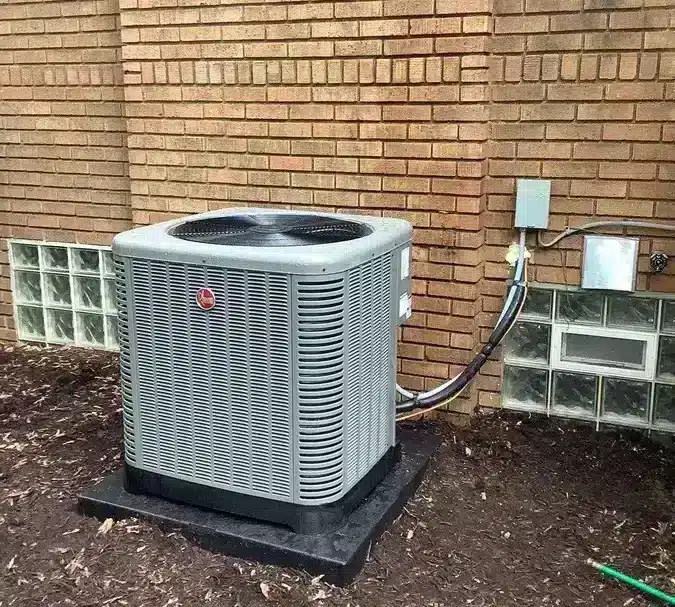When to Consider AC Replacement: Key Indicators
Service You Can Count On. Experience You Can Trust.

As your home’s comfort system ages, its efficiency can decline significantly, leading us to question whether it’s time for an AC replacement. Recognizing the early signs of inefficiency can save you from unexpected breakdowns and costly repairs, ensuring that your living environment remains comfortable regardless of the season.
Many homeowners may not realize that their AC system’s declining performance can impact their comfort and their wallet. Increased energy usage, frequent need for repairs, and inconsistent temperatures throughout the home indicate that your AC may be nearing the end of its useful life.
Explore these key signs in detail, helping you to understand when a replacement might be more beneficial than another repair. Our goal at Trusted Heating and Cooling Solutions is to equip you with the necessary knowledge to make informed decisions about your AC system, guided by our experienced technicians who prioritize your comfort and satisfaction.
Identifying Declines in AC Efficiency and Performance
When your air conditioning system begins to falter, the signs can be subtle but steadily worsen over time. One of the first things you might notice is a decline in the efficiency and performance of your AC. This often manifests as longer run times or the system struggling to maintain set temperatures—a telling sign that it may not be operating as efficiently as it once did. Our professionals often identify blocked air filters, leaks in the ductwork, or worn components as the culprits behind these inefficiencies. These issues can hinder air flow and heat exchange, core functions for any AC system.
Another clear indicator of declining performance is uneven cooling in different parts of your home. If some rooms are significantly cooler than others, this inconsistency can suggest problems with the AC’s blower or duct system. It’s important to address these signs early with the help of our skilled technicians. Ignoring them can lead to more significant problems, forcing your AC to work harder to cool your home, which in turn can dramatically shorten its lifespan.
Understanding the Cost Implications of Frequent Repairs
The ongoing costs associated with frequent AC repairs can be an unexpected strain on your finances. Every service call, part replacement, and hour of labor adds up, making it essential to monitor how often your AC system needs professional attention. With older systems, you might find that the costs of these repairs begin to approach, or even exceed, the price of investing in a new, more reliable unit. This is a crucial indicator that replacement may be a more economical decision.
Beyond just the immediate repair bills, there’s also the consideration of future expenses. Our technicians can provide a detailed analysis based on the current condition of your AC system, estimating potential future repairs or breakdown risks. This predictive insight allows you to weigh the financial implications of ongoing maintenance against the upfront cost of installing a new system. Choosing to replace an inefficient or problematic AC unit with a modern, energy-efficient model can not only save on repair costs but can also reduce energy expenses in the long run, a factor worth considering when making your decision.
Evaluating Energy Consumption and Utility Bill Increases
As your air conditioning system ages, you may start to notice a gradual increase in your utility bills. Increased energy consumption often signals inefficiencies within the AC system that, if unchecked, can significantly increase costs. We conduct thorough assessments to pinpoint inefficient operations and the causes behind the energy usage spike. One common issue we find is that older units or improperly maintained units often have to work harder to produce the same level of cooling, thus consuming more energy.
Our professionals meticulously examine your AC system’s energy consumption patterns to address these inefficiencies. This analysis includes evaluating the compressor’s performance, the condition of the condenser coils, and the thermostat’s accuracy. By identifying and addressing these components, we can restore your system’s efficiency, potentially lowering your energy bills and increasing the unit’s operational lifespan.
Assessing AC Age and Technological Advancements for Replacement
Understanding when to replace your air conditioning unit is crucial for maintaining optimal air comfort and operational efficiency. The typical lifespan of an AC unit is around 10 to 15 years, but this can vary based on the unit’s maintenance history and brand. Our professionals can help you assess your AC unit’s technical and economic lifespan, considering its age and recent advancements in cooling technology that might benefit your home or business.
Modern air conditioners offer significant improvements in energy efficiency, performance, and features compared to older models. These advancements include programmable thermostats, improved energy efficiency ratings, and better overall design. If your AC is approaching the end of its useful life, it may be wise to consider a replacement to take advantage of these technological improvements. Our team provides expert advice and installation services, ensuring that your new system is perfectly suited to your specific needs, offering enhanced comfort, reduced environmental impact, and lower energy costs.
Conclusion
Ensuring that your AC system receives regular maintenance and timely upgrades is essential for avoiding unnecessary costs and achieving optimal climate control. At Trusted Heating and Cooling Solutions, our commitment is to provide you with expert service and advice on maintaining, repairing, or replacing your air conditioning systems. Remember, well-timed maintenance and proactive upgrades can greatly extend the life of your AC, improve its efficiency, and save you money in the long run.
If you suspect your system might be due for a check-up or possibly a replacement, don’t hesitate to contact us for a comprehensive AC service in Whitmore Lake and beyond. Let Trusted Heating and Cooling Solutions be your partner in maintaining a comfortable and efficient home or office environment!
Call Now (810) 355-1669
